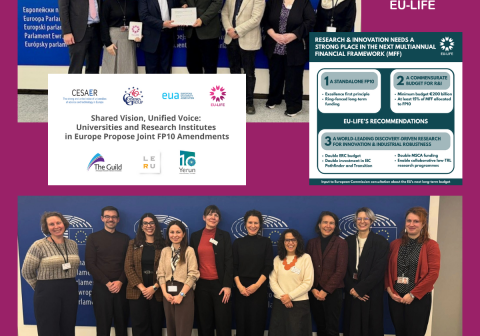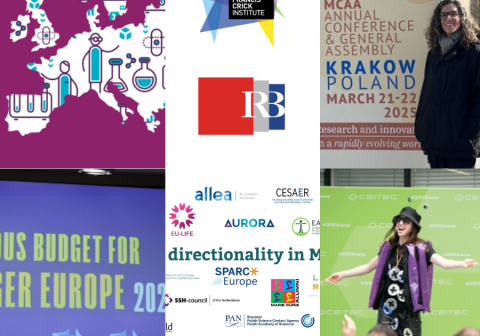No Directionality in MSCA: Research community urges the EU to preserve MSCA’s bottom-up approach
Joint statement warns that introducing directionality in MSCA would risk undermining the programme’s success.
European research organisations, led by Coimbra Group, EU-LIFE and YERUN, have issued a joint statement calling on the European Commission and Member States to preserve the bottom-up structure of the Marie Skłodowska-Curie Actions (MSCA). The statement responds to a proposal to introduce directionality in the 2026–2027 Work Programme by steering project calls toward predefined areas.
The signatories stress that MSCA’s success lies in its openness to all fields and topics, driven by researchers’ initiative and scientific excellence. Imposing thematic restrictions risks narrowing the scope of innovation and limiting opportunities for early-career researchers.
"Bottom-up is the essence of the MSCA actions and Coimbra Group has always been very clear about this, for instance in its recommendations to the Commission on the future orientations of MSCA in early 2024," said Emmanuelle Gardan, Director of Coimbra Group. "There is no need to put energy into changes and new features in a programme that everyone is happy with - that is both popular and works well according to ALL stakeholders - with one exception, the continued low success rates. In a nutshell, do not change a winning concept!"
"The MSCA is a gold standard because its bottom-up, non-prescriptive model gives researchers the conditions to drive innovation where it matters most," added Marta Agostinho, Executive Director of EU-LIFE. "This is what keeps Europe competitive on the global stage."
MSCA in its current state already delivers significant contributions to strategic areas even before any political prioritisation is envisioned. More than 1,000 ongoing projects focus on artificial intelligence, backed by nearly €1 billion in EU funding under Horizon 2020 and Horizon Europe. Over 170 projects address quantum technologies, and thousands of MSCA researchers are involved in work related to the EU Missions.
Also notable is that the demand for MSCA continues to grow, while the budget has seen only marginal increases between funding cycles. While the primary message is about preserving MSCA’s model, the signatories also encourage a significant funding boost in the next Framework Programme (FP10) to match the programme’s expanded impact and address the structural challenges that research careers face.
“We need to stop reacting to challenges when it is too late. We need strong, long-term strategies to support Europe's talent and research careers," stated Silvia Gómez Recio, YERUN Secretary General.
The joint statement is currently supported by: YERUN, Coimbra Group, EU-LIFE, ALLEA, Aurora Universities Network, CESAER, EASSH, ECIU, EUA, Eurodoc, Initiative for Science Europe (ISE), LERU, MCAA, PolSCA, SPARC Europe, The Guild, UNICA.
Any other organisation wishing to support this initiative is welcome to help raise awareness by sharing the statement.
The joint statement is available here.



